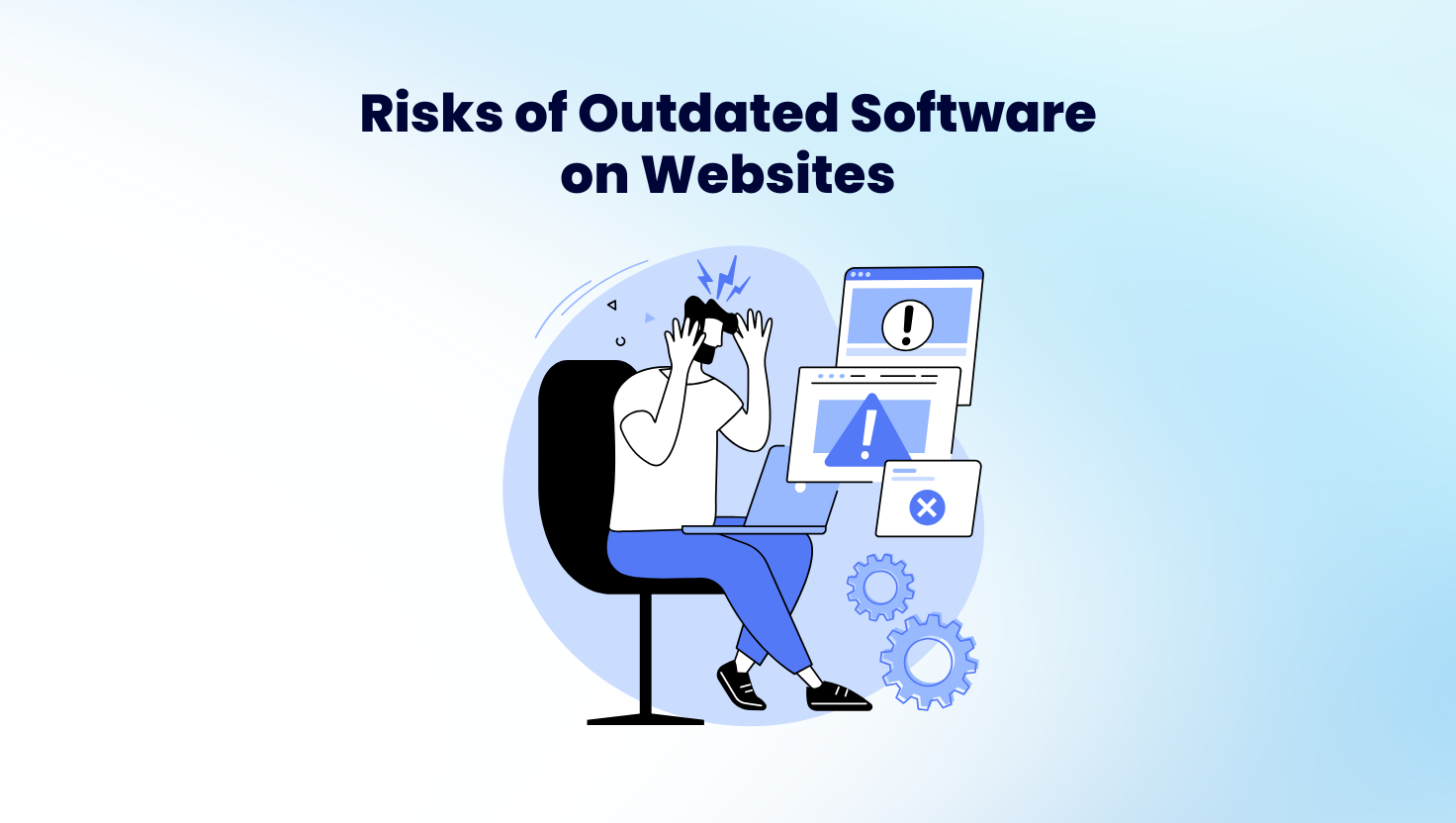
25 Feb The Risks of Using Outdated Software on Your Website
Keeping your website updated is crucial for security, performance, and functionality. Yet, many businesses continue to operate with outdated software, unaware of the risks it poses. Whether it’s an outdated content management system (CMS), plugins, themes, or server software, failing to update can lead to security vulnerabilities, poor user experience, and even legal issues.
This blog will explore the dangers of using outdated software on your website and how to prevent them.
Why Do Businesses Use Outdated Software?
Many businesses neglect software updates due to:
- Fear of Compatibility Issues: Updates may break existing features or require additional modifications.
- Lack of Technical Knowledge: Some businesses lack the expertise to manage updates properly.
- Cost Considerations: Upgrading software or hiring IT professionals may seem costly.
- Negligence: Some businesses simply overlook updates or underestimate their importance.
However, using outdated software can have serious consequences.
1. Security Vulnerabilities
Risk:
Outdated software is a prime target for hackers. Cybercriminals actively exploit known vulnerabilities in old versions of CMS platforms, plugins, and server software. If your website is running outdated software, it becomes an easy entry point for:
- Malware attacks – Hackers can inject malicious code into your website.
- Data breaches – Sensitive customer and business data can be stolen.
- Website defacement – Attackers can alter your content or redirect users to malicious sites.
Solution:
- Regularly update your CMS (e.g., WordPress, Joomla, Drupal) to the latest version.
- Keep plugins, themes, and third-party tools up to date.
- Enable automatic updates where possible.
- Use a Web Application Firewall (WAF) to monitor and block attacks.
2. Poor Website Performance
Risk:
Outdated software often lacks performance optimizations found in newer versions. This can lead to:
- Slow loading times – Affecting SEO rankings and user experience.
- Increased server resource usage – Leading to crashes during high traffic.
- Broken features – Some functionalities may stop working as browsers update.
Solution:
- Upgrade to the latest software versions to benefit from performance improvements.
- Optimize website assets (images, scripts, and databases).
- Use Content Delivery Networks (CDNs) to speed up content delivery.
- Monitor site performance with tools like Google PageSpeed Insights.
3. SEO and Search Engine Penalties
Risk:
Search engines prioritize secure, fast, and user-friendly websites. Using outdated software can negatively impact your SEO because:
- Slow websites rank lower in Google search results.
- Security breaches can result in search engines marking your website as unsafe.
- Incompatible features may affect how search engines crawl your site.
Solution:
- Keep your website software updated to meet modern search engine requirements.
- Use SSL certificates to maintain security and trust.
- Regularly audit your site for SEO and security vulnerabilities.
4. Incompatibility with Modern Browsers and Devices
Risk:
Web technologies evolve rapidly, and older software may not support the latest browser updates, leading to:
- Broken layouts on modern browsers and mobile devices.
- Non-functional features due to outdated JavaScript or CSS.
- Reduced accessibility for users with disabilities.
Solution:
- Test website functionality on different browsers and devices.
- Update software to maintain compatibility with modern web standards.
- Implement responsive design to ensure a smooth experience for all users.
5. Compliance and Legal Risks
Risk:
Outdated software may not comply with modern security regulations such as:
- GDPR (General Data Protection Regulation) in Europe.
- CCPA (California Consumer Privacy Act) in the U.S.
- PCI DSS (Payment Card Industry Data Security Standard) for e-commerce sites.
Failing to comply can lead to fines, lawsuits, and loss of customer trust.
Solution:
- Ensure that your software supports modern security and data protection protocols.
- Use privacy policy generators to update your policies based on the latest regulations.
- Conduct regular security audits to ensure compliance.
6. Increased Maintenance Costs
Risk:
Delaying software updates can lead to higher maintenance costs in the long run because:
- Older software requires custom patches to fix security issues.
- Outdated systems may not be compatible with new third-party integrations.
- Finding developers familiar with outdated technology can be expensive.
Solution:
- Perform incremental updates instead of waiting for major overhauls.
- Migrate to long-term support (LTS) versions to ensure stability.
- Work with professional web development teams for proactive maintenance.
Best Practices for Keeping Your Website Updated
To avoid the risks of outdated software, follow these best practices:
-
- Enable Auto-Updates – Set your CMS, plugins, and security tools to update automatically.
- Regular Backups – Always back up your website before making updates to prevent data loss.
- Monitor Security Alerts – Subscribe to security notifications for your CMS and hosting provider.
- Audit Your Website – Perform security and performance audits every 3-6 months.
- Use Managed Hosting – Choose a hosting provider that handles software updates for you.
How PT. KDN Can Help Keep Your Website Secure and Updated
At PT. KDN, we understand the importance of maintaining a secure and high-performing website. Our website maintenance and security solutions ensure that your business stays protected against cyber threats while keeping your software up to date.
Our Services Include:
- Automated Security Updates – Ensuring your website stays protected at all times.
- Performance Optimization – Enhancing speed and efficiency for a better user experience.
- Regular Backups & Monitoring – Preventing data loss and ensuring uptime.
- Compliance & Security Audits – Keeping your website compliant with industry standards.


Sorry, the comment form is closed at this time.